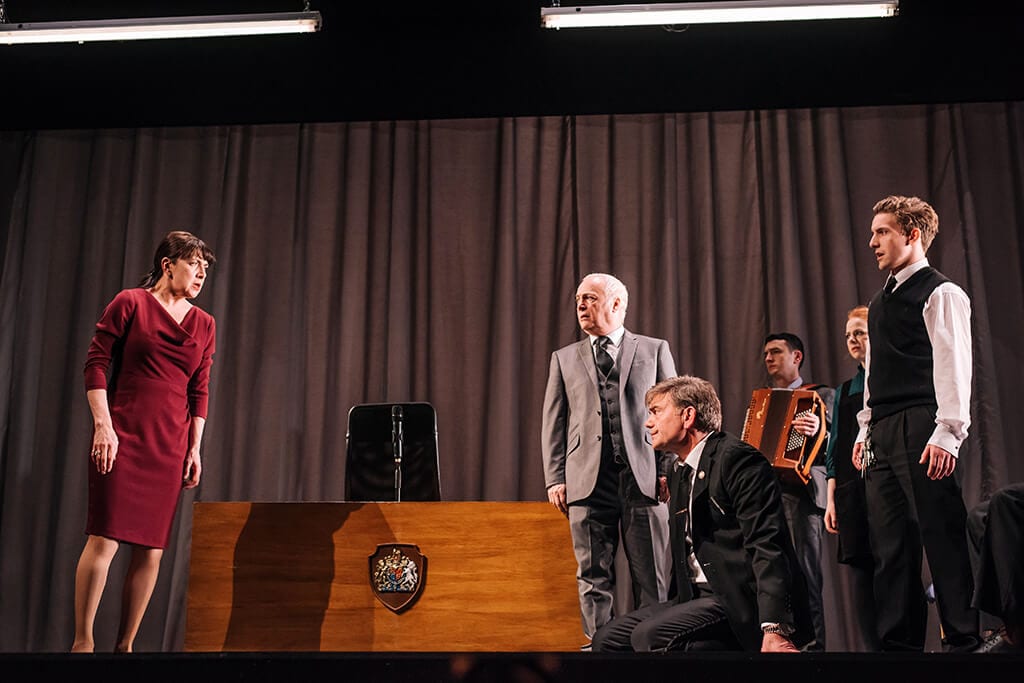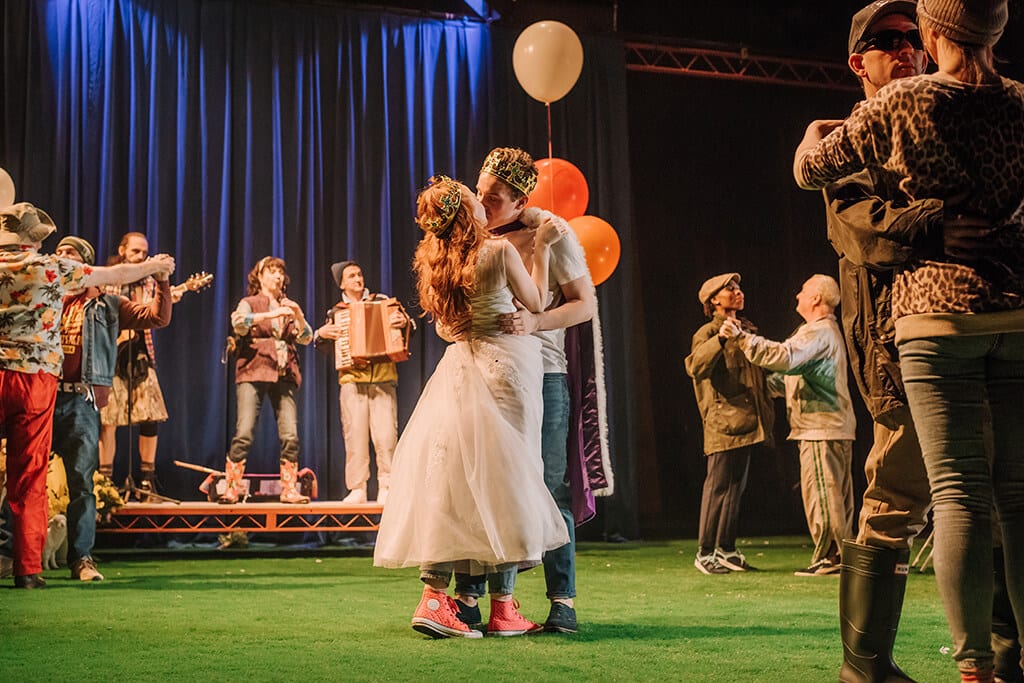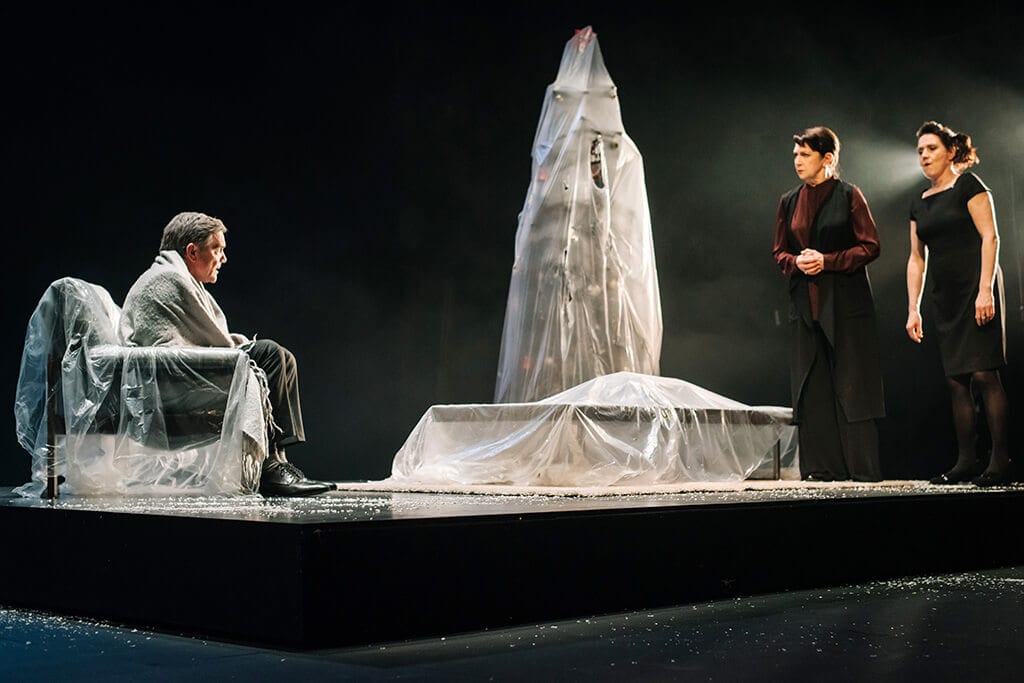A tale of tyranny, mistrust and a disregard for the rule of law is a pertinent choice for these troubled times. ‘The gods do this year connive at us’, bemoans Autolycus (Jimmy Chisholm), and it is hard not to agree. Fortunately, The Winter’s Tale ends with joy and redemption, so maybe there is a happy ending yet to be anticipated for the rest of us.
The play tells the story of Leontes (the ever-excellent John Michie), king of urbane Sicilia, who wrongly suspects his pregnant wife Hermione (Frances Grey) of being unfaithful to him. Through his rash actions he loses his wife, new-born baby and existing child, subsequently sinking into a perpetual emotional winter.
The second half of the play takes place sixteen years later, largely in rural Bohemia. There, King Polixenes (Andy Clark), the accused lover of Hermione and ex-friend of Leontes, presides over a more cheerful, relaxed court. However, trouble is brewing here too as his son has fallen in love with a shepherd’s daughter.
The contrast between tragic first half and comic second half might well clunk awkwardly if handled carelessly. However, director Max Webster and his cast carry this off with daring panache. Much of the later scenes set in Bohemia have been translated into Scots in what seems at first like an outrageous liberty. Fortunately, the translation works well, effectively evoking the different sense of place integral to the play’s abrupt shift in tone.
The use of music, too, is delicately handled. Traditional tunes and modern songs are blended using Scottish instruments and electronic beats. In rigid Sicilia (recast as Edinburgh) the music is performed from a recording booth while in relaxed Bohemia (recast as the Kingdom of Fife) the performers leave the booth, the music permeating the whole stage.
The modern, Scottish tinge that the music lends the production helps it to rise above more conventional Shakespearean fare. Kilts and See You Jimmy hats abound and the Proclaimers crop up more than once. This gives the production a fresh and riotous feel in its second half, ably aided by the excellent Chisholm as Autolycus, who frequently has the theatre shaking with laughter.
If there are quibbles, they are few and do not detract from the overall excellence of the play. The ‘recording booth’ is a neat touch, but leads to some awkward clambering in and out. Grey’s stirring speech against tyranny as the wronged Hermione is powerful, but distanced from the audience by being delivered from behind glass.
Outside of the booth, Grey’s Hermione is one of several fine performances. Michie’s slow descent into jealous madness is tortuously observed while Maureen Beattie provides admirable support as the loyal Paulina. The excellent acting is set among some dramatically staged set-pieces. The storm-tossed final scene of the first act has the audience almost wiping sea spray from their brows. The monochrome scenes in Sicilia at the end of the play form striking, indelible images.
It is only right to leave the final word to that famous bear, last seen exiting stage left pursuing Antigonus (John Stahl, another strong performance). Like the production, the bear arrives on stage fairly conventionally, before taking an unusual and surprisingly powerful twist. As this winter draws to a close, go and see The Winter’s Tale – it’s a contemporary Scottish treat.





